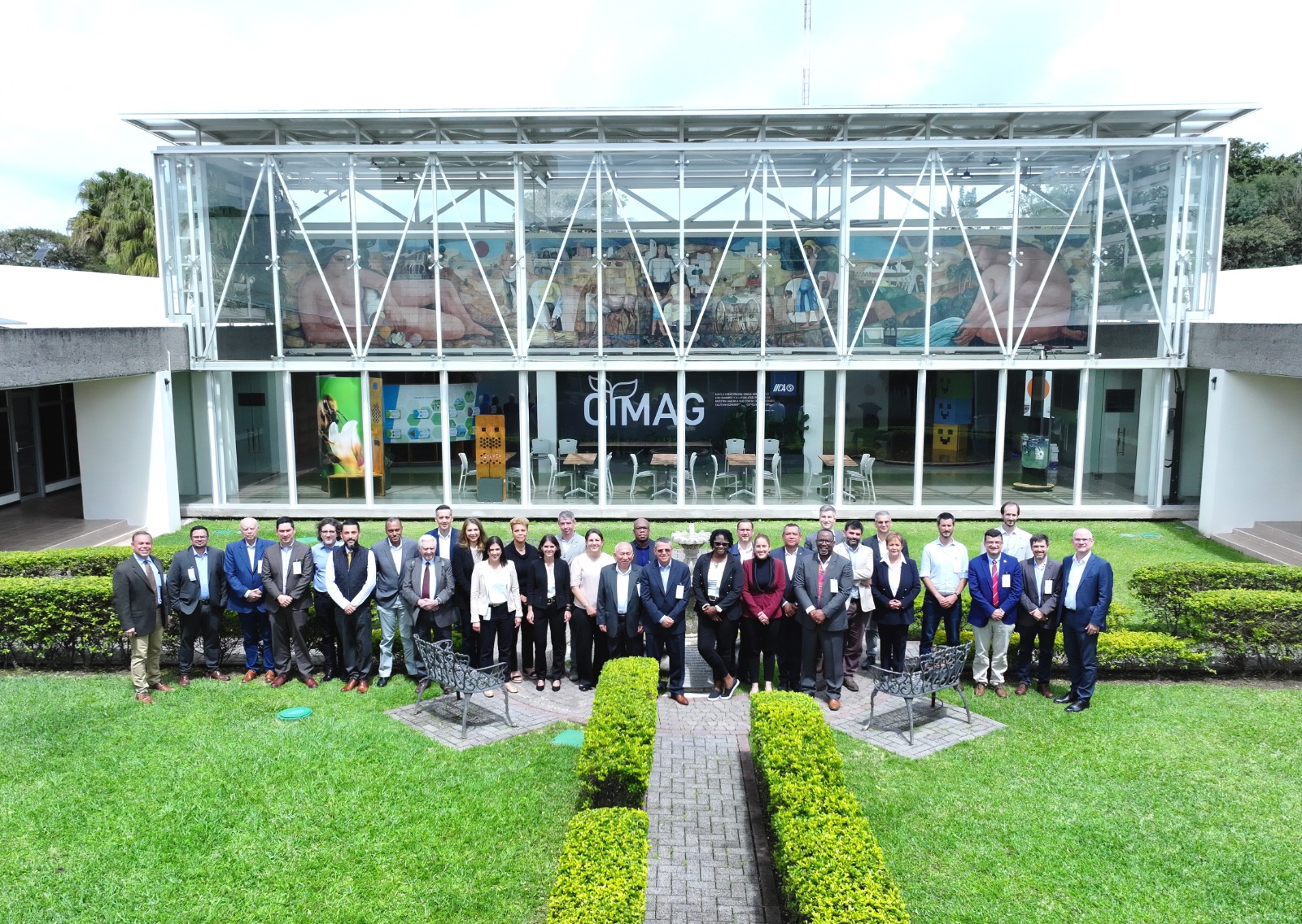Authorities from the Hemisphere’s agriculture sector and experts from international organizations met at the Headquarters of the Inter-American Institute for Cooperation on Agriculture (IICA), in Costa Rica, to identify and analyze public policies to strengthen the agrifood systems of the Americas.

San Jose, 10 November 2023 (IICA) – Authorities from the Hemisphere’s agriculture sector and experts from international organizations met at the Headquarters of the Inter-American Institute for Cooperation on Agriculture (IICA), in Costa Rica, to identify and analyze public policies to strengthen the agrifood systems of the Americas, amidst a challenging and dynamic international climate, and within the context of the Hemispheric Partnership for Food Security and Sustainable Development recently approved by the ministers of the sector.
At the meeting, discussions among specialists from IICA, the World Bank, the Inter-American Development Bank (IDB), the Economic Commission for Latin America and the Caribbean (ECLAC), the Food and Agriculture Organization of the United Nations (FAO), the International Food Policy Research Institute (IFPRI) and the United States Agency for International Development (USAID), among others, focused on a new generation of public policies for the management of agrifood systems in the region, which in great measure will depend on the exchange of best practices and the perspective of farmers.
Manuel Otero, Director General of IICA, remarked that, “We are firmly convinced that the challenges and opportunities arising from the new international context should provide the basis for new development strategies adapted to the unique circumstances of each country of the Americas, which will call for a new generation of public policies for agrifood systems in the region”.
The meeting was organized into five working sessions, with the first session focusing on challenges and opportunities within the new global and regional context and the importance of rethinking the international positioning of the countries of the hemisphere. Suggestions were also made about how to allocate more resources to create public goods, eliminate distortions in the use of these resources, produce greater economic returns and to highlight the role of the Americas in producing food to strengthen global food security.
The second session addressed the need to rethink strategies to develop the agrifood systems of the region. The conclusion was that the key to success would be to reassess and place greater value on the role of agriculture and its contribution to the Sustainable Development Goals. This requires a systemic approach that goes beyond primary production, seeking to improve productivity and the sustainability of agrifood systems and to consolidate a new institutional framework.
The discussions also dealt with the use of public policies for agrifood systems, pinpointing the need to create and draw on scientific and policy evidence to obtain results that meet the desired objectives. Also emphasized was the importance of the three pillars of sustainability (environmental, economic and social), as well as the element of governance.
The fourth forum dealt with the Hemispheric Partnership for Food Security and Sustainable Development and the collective actions that are a part of it. Participants agreed that the partnership should be a common front for regional action in the Americas, which should forge a consensus to develop a joint work plan, continually measuring the impact of these actions.
The final working session included a presentation of the mechanisms or support tools that the participating agencies have implemented in this inter-agency effort to manage public policies in their member countries. These included two IICA programs – the Public Policy Observatory for Agrifood Systems (OPSAa) and the Leadership School for the Transformation of Agrifood Systems of the Americas (ELTSA); the Avanzar 2030 initiative, headed by IFRI, in collaboration with the University of Notre Dame and IICA; and the United Nations Task Force for Food Systems in Latin America and the Caribbean.
These tools and support mechanisms complement each other, with a view to stimulating dialogue and the exchange of knowledge and experiences related to public policies for agrifood systems in the region. They are also seeking to create a new generation of leaders and to strengthen the capacities of public and private stakeholders that are involved in the management of public policies, programs and investment projects.
Through these mechanisms, the agencies are aiming to systematize scientific evidence in order to identify promising agrifood system innovations, at the policy, institutional or technology level, in a bid to foster environmental, social and economic sustainability.
Finally, the instruments promote collaborative work, aiming to contribute to the Latin American and Caribbean agenda in the aftermath of the Food Systems Summit, by supporting the implementation of national roadmaps.
Among the next steps within the framework of the Partnership, the participants agreed to establish the Agrifood Policy Network of the Americas, as a starting point, and to move forward in the medium term to build a joint conceptual framework as the basis for a concrete and clear roadmap for collective and coordinated action, with the active involvement of the countries, international organizations and the bank.
More information:
Institutional Communication Division.
comunicacion.institucional@iica.int











